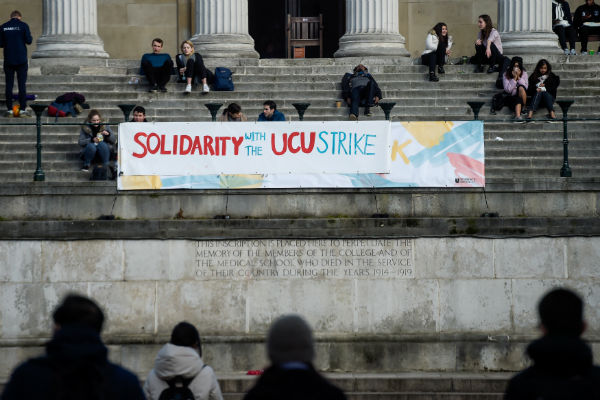'Deeply concerned' about effect on students: Education minister

LONDON (Reuters) — Lecturers at universities across Britain began a strike on Thursday in a fight over changes to pensions, the first of a series of walkouts their union said would affect more than one million students.
The strike was the first planned over the next month which the University and College Union (UCU) said would hit more than 60 institutions — including the elite Oxford and Cambridge Universities — and lead to the loss of 575,000 hours of teaching.
Tens of thousands of students, who pay up to 9,250 pounds (US$12,900) a year for their courses, have signed petitions demanding compensation if their studies are disrupted.
"The universities' refusal to negotiate with us has caused this mess and they owe it to students to start negotiating properly," said UCU general secretary Sally Hunt.
UCU members are angry at plans to end the defined benefit element of pensions, which the union says would leave a typical lecturer 10,000 pounds a year worse off.
Universities UK, the body comprising executive heads of universities, said the cost of future pensions had risen by a third in the last three years and that the Universities Superannuation Scheme had a deficit of 6.1 billion pounds.
"This industrial action is targeted at students," a Universities UK spokesman said. "It will be young people and the next generation of students who will also suffer if their education deteriorates because employers are forced to make cuts to pay more into pensions."
Sam Gyimah, the government minister responsible for universities, called on both sides in the dispute to return to talks.
"I am deeply concerned about the impact this strike will have on students who deserve to receive the education that they are paying for," he said in a statement.




